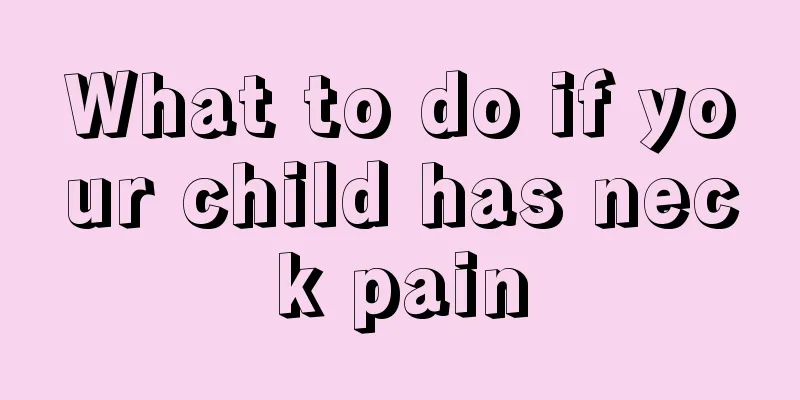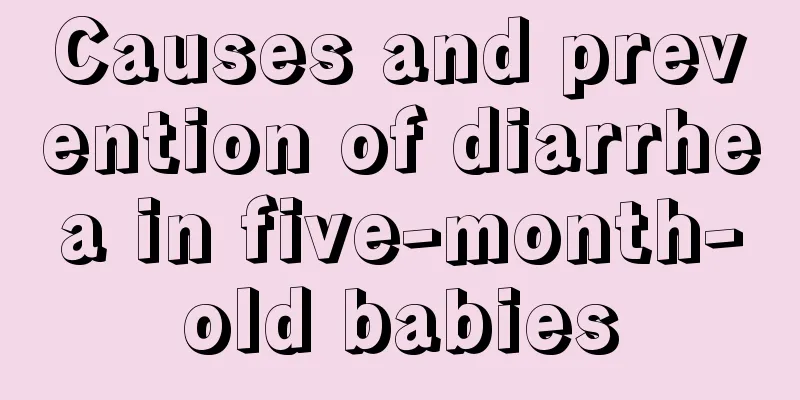Baby sweats a lot when sleeping after being sick

|
The baby's illness is a matter of great concern to parents, because the baby's illness will cause certain effects on the body, hinder the baby's development, etc. Common diseases among babies include various colds and fevers, among which fever has the greatest impact on babies. Some babies will sweat while sleeping after being sick. Let’s take a look at why babies sweat a lot while sleeping after being sick? Infants and young children have an active metabolism and are active and lively. Some of them cannot rest even after going to bed at night, so they may sweat on their heads after falling asleep. The so-called physiological hyperhidrosis refers to sweating during sleep when the child is well-developed, healthy, and has no disease. Parents are often accustomed to deciding the best environmental temperature for their children based on their own subjective feelings, and like to cover their babies with more blankets and keep them tightly covered. Because children's brain and nervous system are not yet fully developed and they are in the growth and development period, their body metabolism is very active. Coupled with the stimulation of overheating, they can only regulate normal body temperature by sweating to evaporate the heat in the body. In addition, drinking milk, malted milk or eating chocolate before going to bed can also cause sweating in children. Some parents give their children milk, malted milk, etc. before they go to sleep. After the child falls asleep, the body produces a large amount of heat, which is mainly dissipated through sweating through the skin. In addition, too high room temperature or excessive warmth can also cause children to sweat while sleeping, which are all physiological sweating. Pathological sweating occurs when the child is in a quiet state, such as sweating caused by rickets, which manifests as obvious sweating on the child's head in the first half of the night after falling asleep. Because the pillow is irritated by sweat, babies often shake their heads and rub against the pillow when they sleep, resulting in sparse hair and loss of hair on the pillow, forming typical annular hair loss on the pillow, which is medically known as "occipital baldness". It is an early manifestation of rickets in infants. As long as vitamin D and calcium are supplemented in time, rickets can be controlled and sweating will stop by itself. |
<<: What is the best way to treat baby's milk rashes?
>>: What to do if your child has a cold and sweats a lot
Recommend
What are the main symptoms of rheumatic fever in children?
Rheumatic fever is a relatively common disease in...
Is it useful for children to take early childhood education classes?
As the saying goes, the early bird catches the wo...
The consequences of not getting vaccinated
We all know that when a child is born, the doctor...
What should I do if my 3-year-old baby gets angry?
In our lives, getting angry is a relatively commo...
What should I do if my child has conjunctivitis?
Conjunctivitis is a common eye disease in real li...
What to do if a three-year-old baby has mild anemia
Children's anemia needs to be divided into mi...
How to care for newborns with respiratory distress
Respiratory disease is a common disease that is g...
What causes bad breath in children?
Bad breath is a very common phenomenon, but if yo...
Is herpes virus contagious in children?
Children's physical resistance is relatively ...
Introduction to the influence of boys' height development
Many boys are generally much shorter than girls i...
How can a newborn baby sleep to have a good head shape?
A first-time mother is paying close attention to ...
What are the symptoms of pulmonary hypertension in infants?
Many infants will develop a more serious disease,...
What should I do if my baby has white hair?
The baby's good health is the happiest thing ...
How many months does the baby stop spitting up milk?
After giving birth to their first child, many you...
How to treat dampness and toxins in children? Do you understand these methods?
There are many treatment methods for children wit...









